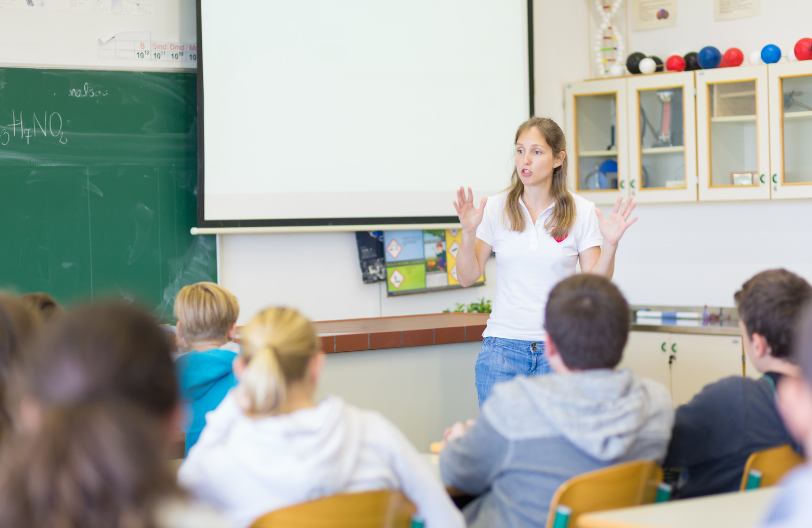Do you want to improve your social life in school and are eager to enrich your social life within the school environment? Look no further. This guide is your one-stop solution to boosting your school social experience, making new friends, and creating lasting memories.
Life Balance

According to a study by the University of Chicago, students with a healthy social life are more likely to succeed academically.
The study found that students with strong social ties had higher GPAs and were more likely to graduate on time.
Here are eight tips to improve your social life in school and achieve a great life balance that will lead you to success:
Setting a Daily Routine:
- Establish a consistent daily schedule.
- Prioritize regular meals and sufficient sleep.
- Incorporate study breaks for reduced stress and increased productivity.
Taking Breaks From Studying:
- Avoid prolonged, uninterrupted study sessions.
- Schedule short breaks to refresh your mind.
- Return to work with a new perspective.
Avoiding Cramming:
- Steer clear of last-minute, high-pressure cramming.
- Opt for consistent, spaced-out study sessions.
- Enhance information retention and reduce stress.
Planning:
- Create schedules for daily, weekly, and monthly tasks.
- Prevent feeling overwhelmed by knowing what to do and when.
Avoiding Perfectionism:
- Recognize the drawbacks of striving for perfection.
- Embrace imperfections and avoid unnecessary frustration.
Breaking Tasks Into Portions:
- Transform large tasks into manageable segments.
- Use to-do lists or schedules to divide and conquer.
- Celebrate accomplishments for motivation.
Maintaining a Healthy Lifestyle:
- Establish a daily routine and adhere to it.
- Prioritize self-care, relaxation, and recharge.
- Consume nutritious foods and ensure adequate sleep.
- Take study breaks to prevent burnout.
Having a Support System:
- Seek support from family, friends, or teachers.
- Reach out when feeling overwhelmed or stressed.
- Open communication can make a significant difference.
How to improve your social life and life balance in school as a teacher

Build a better social life as a teacher at school. Here is how:
- Get involved in extracurricular activities. This is a great way to meet new people, both students and staff, and to pursue your interests outside of the classroom. You could coach a sports team, advise a club, or start your own.
- Attend school events. This shows your support for your students and colleagues, and it’s a great opportunity to socialize. Go to school plays, sporting events, concerts, and other activities.
- Eat lunch with other teachers. This is a great way to get to know your colleagues better and to build relationships. If there’s no staff lounge, try to find a regular spot in the cafeteria to eat together.
- Join a teacher’s association. This is a great way to network with other teachers, learn about professional development opportunities, and get support.
- Organize social events for teachers. This could be a potluck dinner at someone’s house, a game night, or a happy hour at a local bar. It’s a great way to get to know your colleagues outside of the school setting.
Create perfect life balance as a teacher in school.
- Set boundaries. It’s important to set boundaries between your work life and your personal life. This means only checking work emails or responding to student messages during work hours. It also means only working on lesson plans or grading papers at home if necessary.
- Delegate tasks. If you can delegate tasks to other teachers, such as grading papers or supervising extracurricular activities, do it! This will free up your time so that you can focus on your priorities.
- Prioritize your health. Make sure to get enough sleep, eat healthy foods, and exercise regularly. Your physical and mental health are essential for your overall well-being.
- Take breaks. Get up and move around every 20–30 minutes to avoid getting too bogged down in your work. Take a walk outside, stretch, or do some deep breathing exercises.
- Say no. It’s okay to say no to extra work or commitments if you’re already feeling overwhelmed. It’s more important to focus on your well-being and priorities.
Ways to Develop and Improve Your Social Skills
Here are some tips on how to develop and improve your social skills:
- Be approachable and friendly. Smile, make eye contact, and introduce yourself to people.
- Be a good listener. Pay attention to what people are saying and ask follow-up questions. Show that you are interested in what they have to say.
- Be supportive and encouraging. Offer compliments and help people out when you can.
- Be yourself. People can tell when you are being fake, so be genuine and authentic.
How to Highlight Social Skills in School

Here are some ways to highlight your social skills in school:
- Join extracurricular activities. This is a great way to meet new people and make friends who share your interests. According to a study by the National Association of Secondary School Principals, students who participate in extracurricular activities are more likely to have higher grades and graduation rates.
- Volunteer your time. Volunteering is a great way to give back to your community and meet new people. A study by the University of California, Los Angeles, found that students who volunteer are more likely to have higher self-esteem and life satisfaction.
- Run for student government. This is a great way to develop your leadership skills and get involved in your school community. A study by the National Association of Student Councils found that students who participate in student government are more likely to have higher GPAs and be accepted into their top-choice colleges.
- Take a social skills class. This can teach you specific skills on how to interact with others and build relationships. A study by the University of Pennsylvania found that students who take social skills classes are more likely to have more friends and feel more confident in social situations.
Ways to Teach Social Skills in Your Classroom
If you are a teacher, there are a number of things you can do to teach social skills in your classroom:
- Create opportunities for students to work together in groups. This can help them learn how to communicate and cooperate with others. A study by the University of Texas at Austin found that students who work in groups are more likely to learn and retain information.
- Role-play different social situations. This can help students learn how to handle different situations in a socially appropriate way. A study by the University of California, Berkeley, found that role-playing is an effective way to teach students social skills such as conflict resolution and turn-taking.
- Teach students about different social skills, such as listening, turn-taking, and conflict resolution. A study by the University of Michigan found that students who are taught social skills are more likely to have positive relationships with their peers and teachers.
- Provide positive reinforcement when students demonstrate good social skills. This can help them learn that good social skills are important and valued. A study by the University of Pittsburgh found that students who receive positive reinforcement are more likely to adopt and maintain good social skills.
The Benefits of Having Good Social Skills in School

Having good social skills can have a number of benefits in school, including:
- Improved academic performance: Students with good social skills are more likely to participate in class, ask questions, and seek help from their classmates and teachers. This can lead to better grades and academic achievement.
- Reduced stress: Having a good social support network can help to reduce stress and anxiety. This is important for students, as stress can interfere with academic performance and overall well-being.
- Improved mental health: Having close friends and social connections can help to improve mental health and reduce the risk of depression and anxiety.
- Increased self-confidence: Feeling good about yourself and your social skills can boost your self-confidence. This can make you more likely to take risks and try new things.
Creating a positive workplace culture
If you are a school administrator, there are a number of things you can do to create a positive workplace culture that promotes social interaction and improve your school social life in school:
- Encourage staff to get to know each other and build relationships. This can be done through social events, team-building activities, and regular communication. A study by the University of North Carolina at Chapel Hill found that teachers who have strong relationships with their colleagues are more likely to be satisfied with their jobs and less likely to experience burnout.
- Provide opportunities for staff to collaborate and work together on projects. This can help them learn from each other and build trust. A study by the University of California, Davis, found that teachers who feel supported by their colleagues are more likely to be effective in their teaching.
- Address any social issues or conflicts in a timely and respectful manner. A study by the University of Maryland found that schools with strong social-emotional learning programs have fewer bullying incidents and better student outcomes.
Real Exiting Facts about Improved School Social Life:
- Students with a healthy social life are more likely to succeed academically.
- Students who participate in extracurricular activities are more likely to have higher grades and graduation rates.
- Students who volunteer are more likely to have higher self-esteem and life satisfaction.
- Students who participate in student government are more likely to have higher GPAs and be accepted into their top-choice colleges.
- Students who take social skills classes are more likely to have more friends and feel more confident in social situations.
- Students who work in groups are more likely to learn and retain information.
- Role-playing is an effective way to teach students social skills such as conflict resolution and turn-taking.
- Students who are taught social skills are more likely to have positive relationships with their peers and teachers.
- Students who receive positive reinforcement are more likely to adopt and maintain good social skills.
- Teachers who have strong relationships with their colleagues are more likely to be satisfied with their jobs and less likely to experience burnout.
- Teachers who feel supported by their colleagues are more likely to be effective in their teaching.
Conclusion
Improving your social life in school can have a number of benefits, including improved academic performance, reduced stress, improved mental health, and increased self-confidence. There are a number of things you can do to improve your social skills and build strong relationships with your peers, teachers, and other school staff. By following the tips in this article, you can improve your school social life in school and have a happy life.
FAQs
Here are some tips on how to be more social in school:
Get involved in extracurricular activities. Be friendly and approachable. Show an interest in getting to know new people.
Be a good listener. When someone is talking to you, pay attention and ask follow-up questions. This shows that you’re interested in what they have to say.
Be yourself. Don’t try to be someone you’re not just to fit in. People will be drawn to you if you’re genuine and authentic.
Here are some tips on how to improve your social life:
Make an effort to connect with people. Be supportive and helpful. Be there for your friends and family when they need you. Offer your help and support, even if it’s just a listening ear.
Be upbeat. Be forgiving. Everyone makes mistakes. If a friend does something to upset you, try to forgive them and move on. Holding on to grudges will only hurt you in the long run.
A good social life is balanced and fulfilling. It includes spending time with friends and family, doing things you enjoy, and being involved in your community. A good social life can help you reduce stress, improve your mental health, and boost your overall well-being.
Here is an example of a good social life:
Regularly spends time with close friends and family.
Is involved in extracurricular activities or hobbies.
Volunteer time to help others. This could involve working at a soup kitchen, tutoring children, or cleaning up a local park.
Attends social events and gatherings.

